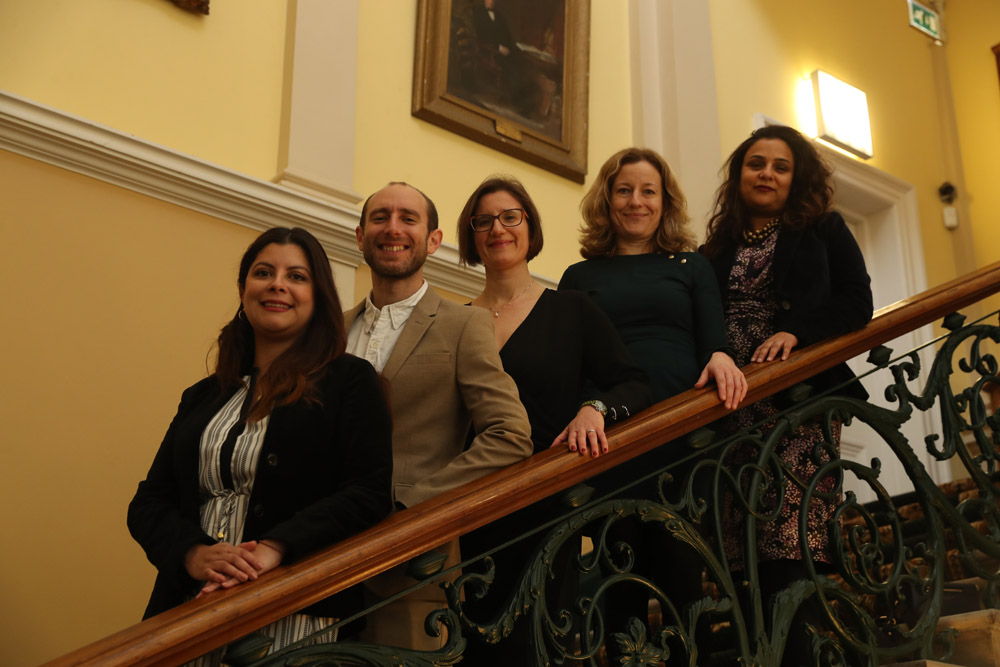
Early-Career University College Dublin Researchers Awarded €1.2 million in Funding by Science Foundation Ireland
Three (3) early-career researchers at University College Dublin (UCD) been awarded a total of €1.2 million in funding, over the next 4-years, by Science Foundation Ireland (SFI).
The funding has been awarded to them under SFI’s Starting Investigator Research Grant (SIRG) programme.
This programme aims to support the development of postdoctoral researchers, and others who have yet to hold an independent research post, in taking the initial steps towards a fully independent research career. It provides them with the opportunity to carry out their own research projects in the fields of science, technology, engineering and mathematics (STEM).
The successful UCD researchers are; Dr Chris Mark, UCD School of Earth Sciences, Dr Maria Prencipe, UCD School of Biomolecular and Biomedical Science, and Dr Amanda Sosa-Avendano, UCD School of Biosystems and Food Engineering.
Dr Mark’s research project is focused on applying a novel mineral-dating approach to answering key geological questions; Dr Prencipe’s research project aims to understand why cancer cells (e.g. in breast or prostrate cancer) do not die in response to current treatments and to use this information to develop new drugs that will work better, leading to clinical trials of new therapies, while Dr Sosa-Avendano’s research project will address the potential transformation of agri-waste into high value, low carbon products by analysing and enhancing current and emerging agri-waste supply chains.
Speaking at the funding announcement Minister of State for Trade, Employment, Business, EU Digital Single Market and Data Protection, Pat Breen TD said, “I am delighted to announce these SFI Starting Investigator Awards which allow researchers to advance their work and further develop their careers as the next research leaders in Ireland and internationally.”
“These innovative projects demonstrate the impressive cutting-edge research taking place across Ireland, which has significant potential to positively advance Ireland’s economy and society, and further solidify its reputation as a world-leader in scientific advancements.”
Professor Mark Ferguson, Director General of Science Foundation Ireland and Chief Scientific Adviser to the Government of Ireland said, “Science Foundation Ireland supports researchers at every stage of their careers. The SIRG awards help early-career researchers develop the essential skills and experience necessary to lead Ireland’s future research in areas such as health, energy, materials and technology.”
“Having passed through a rigorous competitive international merit review process, these projects continue to advance Ireland’s international research reputation and I wish each awardee every success.”
Minister Breen TD announced a total of 20 research projects across Ireland would receive a total of €10.8 million in funding through the SFI SIRG Programme.
ENDS
16 January 2019
For further information contact Micéal Whelan, University College Dublin, Communications Manager (Innovation), e: miceal.whelan@ucd.ie or t: + 353 1 716 3712.
Editors Notes
The SFI Starting Investigator Research Grant (SIRG) programme supports the development of excellent postdoctoral researchers, and others who are yet to hold an independent research post, in taking the initial steps towards a fully independent research career. The SIRG award provides an opportunity for excellent early-career-stage investigators to carry out their own research project in the fields of science, technology, engineering and mathematics (STEM).
The award has a duration of four years, during which researchers are provided with the necessary experience towards a full-time academic position, including supervision of a postgraduate student who is funded through the award to work on the research project.
